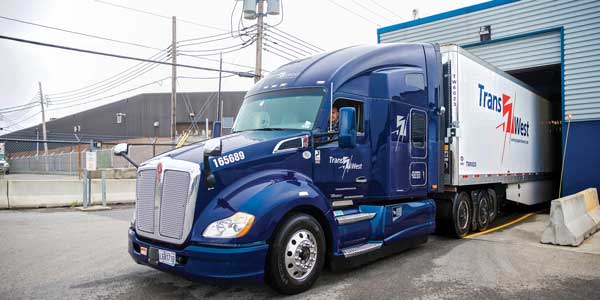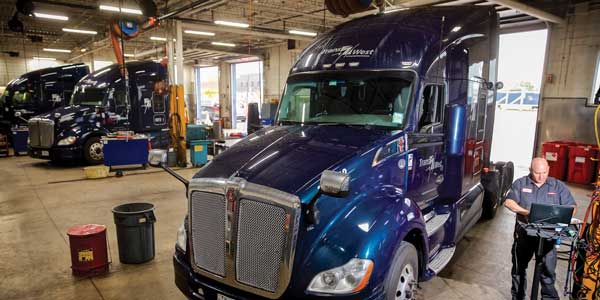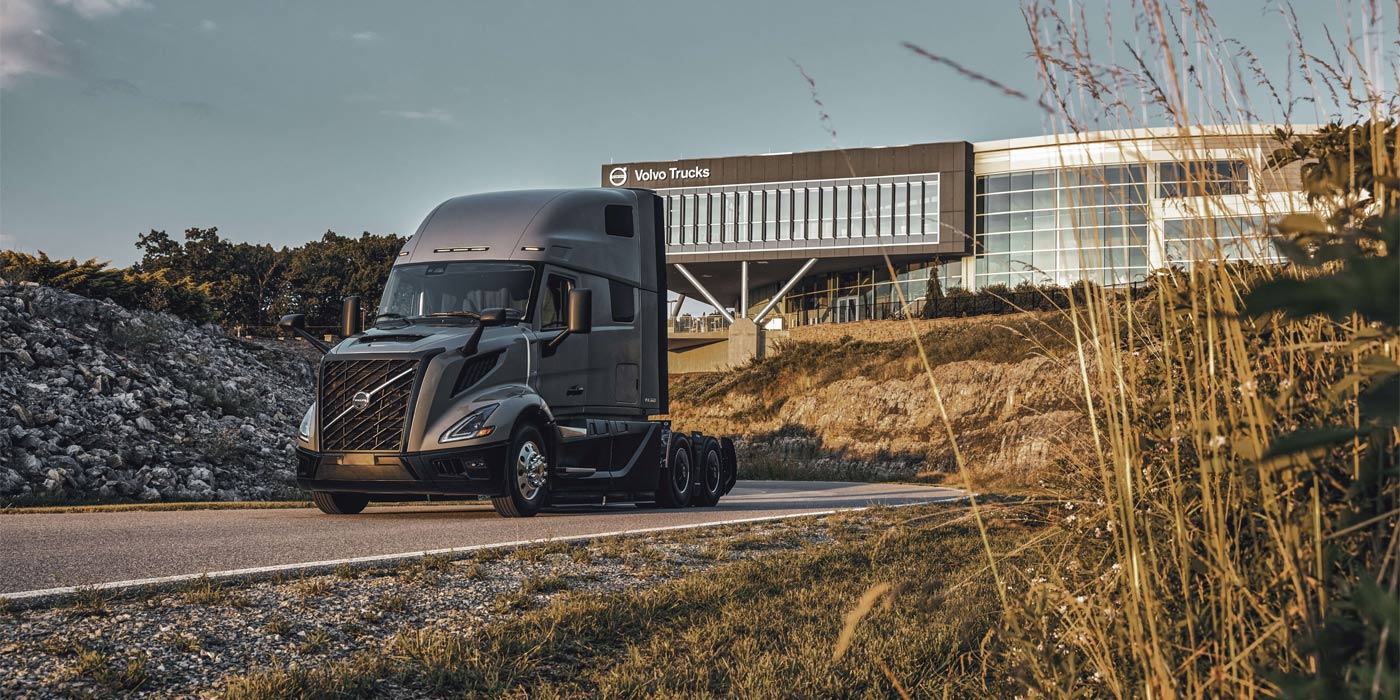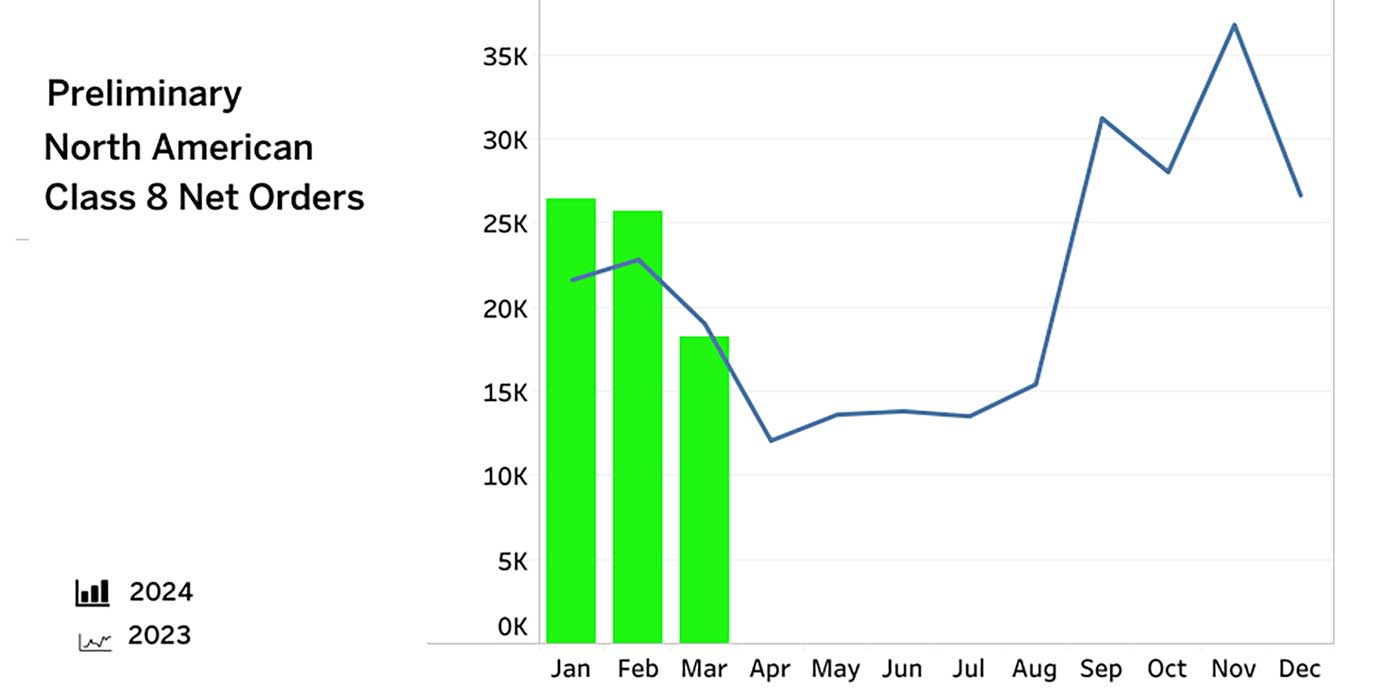Trans-West Group is in an enviable position. “We are growing with our customers, and sometimes the demand for our services actually outpaces the freight carrying capacity we can supply,” says André Boisvert, co-owner and vice president of technology and development. “That’s because we offer a highly specialized service. However, it takes a transportation system that maximizes our efficiency to get the job done.”
Based in the Montreal suburb of Lachine, Quebec, Trans-West hauls all types of goods to the west coasts of Canada and the U.S., as well as Florida, and specializes in backhauling produce and other refrigerated products to Quebec and Ontario. The fleet of 160 tractors and 280 trailers logs 36 million miles a year.
Founded in 1988 by Réal Gagnon, Trans-West Group now offers refrigerated truckload transport, intermodal transportation, brokerage and outsourced logistics services.
According to Boisvert, Trans-West attributes much of its success to running around the clock and operating almost entirely with driver teams. “That sets us apart from our competitors,” he elaborates. “With teams, we can dispatch 25 to 30 departures from Quebec to California daily and complete a 3,000-mile west coast haul in just two and a half days.”
Re-examining its business model
When the recession hit the North American economy in 2008, freight volumes at Trans-West tumbled. “That gave us a chance to re-examine our business model; specifically how we field our fleet,” Boisvert relates. “Historically, we purchased and maintained our own equipment, but we understood that logistics was our core business and we knew the fleet was consuming a lot of our time and energy because about every 38 months we had to buy new trucks.
“The use of driver teams also impacted our tractor choices,” Boisvert continues. “Our drivers are always moving or taking mandatory rest periods, so their need for a comfortable vehicle was a main consideration. Over the years, we tried many types of trucks and different sleeper configurations for our teams, the routes they travel and the type of loads we haul.
“New trucks also meant continuous training in our maintenance department to keep up with the latest technologies,” Boisvert adds. “And since our trucks average 300,000 miles a year, they are rarely home, which poses a challenge when it comes to routine maintenance and—while rare—when a breakdown occurs.”
The advantage is predictability
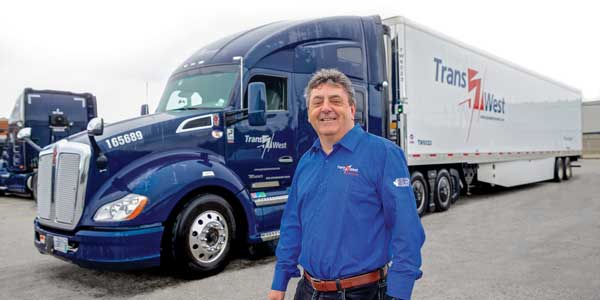
For Trans-West, the answer to those challenges was to lease its fleet and contract maintenance through PacLease Montreal. “The advantage is predictability,” Boisvert says. “With leasing, we have stable costs and fewer variables. It allows us to budget accurately. Most importantly, it helps us negotiate better rates with shippers so that we have the confidence that we will remain profitable.
“It was mainly a question of doing what we do best,” Boisvert adds, “and our answer to that was obvious: We know transportation and logistics. What we needed was a supplier that could handle the needs of a constantly moving fleet of 100 trucks or more.”
In addition to leasing Kenworth T680 tractors to Trans-West, PacLease Montreal handles all of the fleet’s maintenance needs at the carrier’s facility. “It’s the best of both worlds,” Boisvert says. “It’s convenient because PacLease provides maintenance at our facility so that we don’t have to shuttle trucks to their locations, and their technicians are trained on the latest technologies on our tractors. We have some very capable technicians, but training them is not our business.”
Trans-West and PacLease also developed programs and apps to enable follow-up on equipment issues and to communicate with drivers. “If a driver has a concern, they let PacLease Montreal know immediately so it can be fixed, and if there is an issue on the road they can be directed to a PacLease location for service,” Boisvert explains. “Streamlining communication gives us added assurance of uptime.”
High priorities
High on the list of priorities for Trans-West are fuel efficiency and safety. “We run a lot of mileage, and we’re always searching for better ways to improve our energy economy,” Boisvert says. “Likewise, safety is one of our main values and a priority at every stage of our operation, from specifications to maintenance to truck driving behavior.”
As a Carrier Partner in the U.S. Environmental Protection Agency’s SmartWay program, Trans-West has made changes to its specs to maximize fuel economy. Included on its latest tractors is the SmartAdvantage powertrain, which pairs the Cummins X15 engine with an Eaton Fuller Advantage series automated manual transmission. Side fairings with integrated steps have been added to the tractors as well, and the fleet’s newest Utility trailers have side skirts and rear aerodynamics devices.
“Safety is also part of our mandate, and we feel strongly that it’s our duty to equip our drivers with the safest equipment and to train them to be safe ambassadors on North American roads,” Boisvert says. “We monitor their driving performance daily and review it after every trip, and we have an entire team of people who are charged with making certain that our drivers operate safely at all times.”
Year after year, Trans-West has been named one of the safest companies in its market segment by the Truckload Carriers Association (TCA). In 2016, TCA ranked the carrier second in North America in the 25 to 49.99 million-mile category. Overall, for the past six years, the company has been named as “One of the 50 Best Managed Companies in Canada,” by CIBC and Deloitte.
While Trans-West continues to stand out in its specialized niche, that also poses unique challenges. Methods such as the long-haul driver teams and effective equipment and maintenance programs are why the company is not only prospering but is also well positioned for
continued growth.

